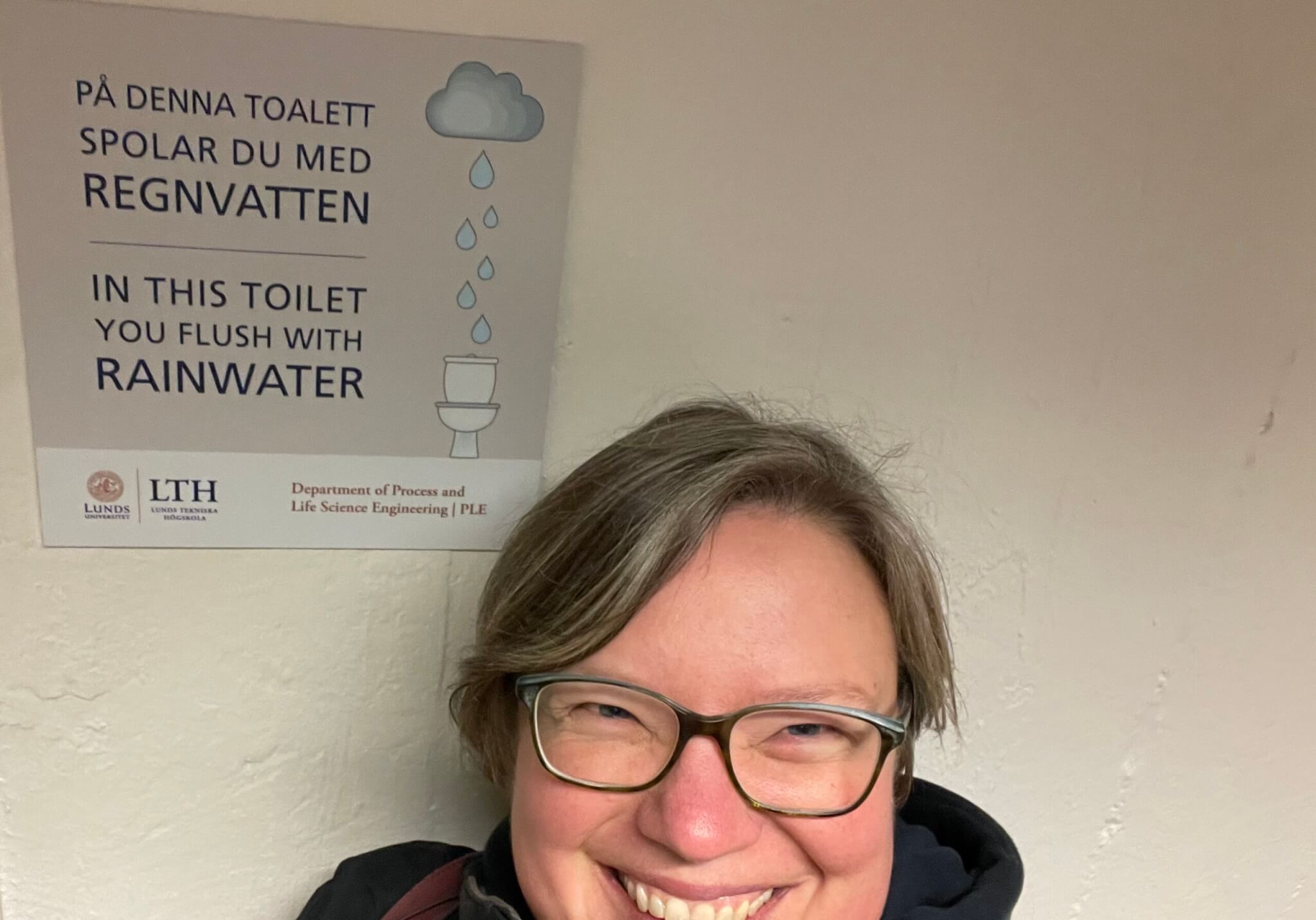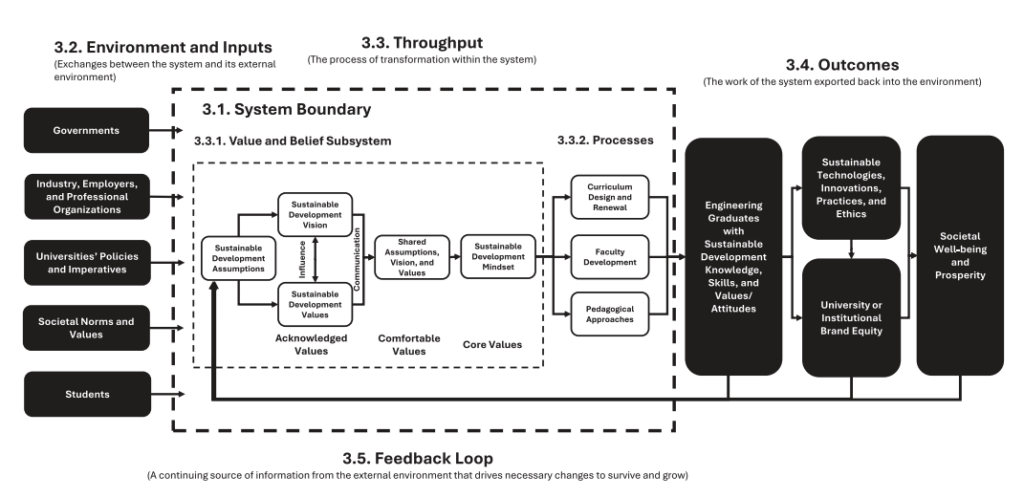
Currently reading Narong (2024): “A system-based framework for engineering education as sustainable development”
After writing about “Teaching about, with, in, through, for sustainability?” last night, writing about Engineering Education as Sustainable Development seems to be the logical next step. This is a summary of Narong (2024)’s framework.
The Narong (2024) framework (see their figure below) describes a feedback loop that takes the inputs (laws, policies, industry stakeholders’ demands, norms & values, and students [and, I would add, also teachers and other staff at university!]) that come from outside a system boundary, lets them interact with values, beliefs and processes within the system (more on those below), leading to some outcome (graduates that meet certain learning outcomes and then, as professionals, influence sustainability parameters, the image of the university, and in the long run “societal well-being and prosperity”), all of which then again feeds back into the system.

Within the system, everything is embedded in a “value and beliefs” subsystem, where sustainable development assumptions play a big role in both shaping the vision but also the acknowledged values, which then feed into what values are shared and become part of the core values/mindset. They stress the importance of the vision in driving change, and use a model by Kantabutra (2020), which contains the stakeholder satisfaction imagery content which is described in a form that matches seven attributes (brevity, clarity, future orientation, stability, challenge, abstractness, desirability or ability to inspire). But a vision alone is not enough, it also needs to be communicated massively, continuously and frequently. In the “practical implications” part of their article, Kantabutra (2020) suggests that a vision should be only 11-22 words long, hence they recommend, for example, abbreviating different stakeholders as “society” (which I am not convinced by — I see that you might want to mention that stakeholders are diverse while saving space, but if you aim to make everybody happy you usually end up making nobody happy…). The overarching goal should also be big (not an easy, one-time goal) and stable, and one good practice example that they give is “To be the leading socially responsible instant foods provider in the world through stakeholder partnership.” This does indeed sound very vague, but they point out that it needs to be broken down into sub-goals to have an effect.
Back to the Narong (2024) framework, though: The transformed mindset of teachers, admin and other staff then leads to changes in pedagogical approaches (for example project-based or service learning) which are (hopefully) reflected in curriculum design (teaching about, for, or as sustainability) and faculty development (the about approach meaning that developing individual teachers’ skills is sufficient, for needing networks and organizational development, and as requiring a transformation of the whole system). This then leads to the outcomes mentioned above, which feed back into the loop.
The article ends with implications for practitioners:
- the need to consider internal and external stakeholders’ interest
- the need for a vision that is actually lived and supported by the organisation
- measured impact of measures and monitoring of alignment with values
- “keep the eye on the prize” and try to get from about or for to as, and realize that it is an iterative process trying to address a wicked problem (see also Hamshire, Barrett and Forsyth (2024)’s approach)
What I take away from this reading is mostly the last point. It is easy to be frustrated with change happening on geologically long time scales, so it is helpful to remind myself that it is a very complicated, iterative process and that going from about to for (in their framework) is already progress, which might happen sooner with some teachers and later with others. And also that there is a bunch of theories of change that can be leveraged to support the process.
But I also really enjoy the focus on creating, and living towards, a vision. I have been pushing for my work group writing down our own vision, or at least statement of what we think is good teaching, for a while, and even just the process itself of trying to come up with a vision is so helpful! Looking at my own university’s vision statement then, it is interesting to note that the central university vision statement is “Our vision is to be a world-class university that works to understand, explain and improve our world and the human condition”, whereas on the sustainability pages, it becomes “Lund University’s vision is to be a world-class university that works to understand, explain and improve our world and the human condition and thereby be a driving force for sustainable development” (emphasis is mine). Is it too ambitious to push for it to be changed in all places into “Lund University’s vision is to be a driving force for sustainable development as a world-class university that works to understand, explain and improve our world”, and then ask for that vision to be massively, continuously and frequently communicated as well as used to guide all strategic decisions? :-D
Featured image: I am not making fun of the new rainwater toilets, I think they are a great idea and something that we should definitely implement more of. But do I also find it hilarious that they are one of the most prominent things done for sustainability at a top-3 sustainability university worldwide, yet you have to email people to find out where exactly they are, because nobody in that very building seems to know…? I guess that is how you could interpret my facial expression…
Narong, D. K. (2024) A system-based framework for engineering education as sustainable development, European Journal of Engineering Education, 49:5, 911-927, DOI: 10.1080/03043797.2024.2374481
Kantabutra, S. (2020). Toward an organizational theory of sustainability vision. Sustainability, 12(3), 1125.